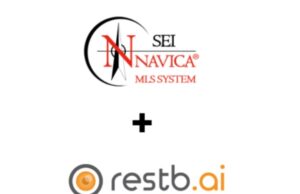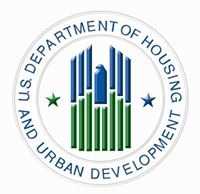EFC Accepting Applications for $425M in Grants for Critical Water Infrastructure Projects
Available Funding Bolstered by First Spending of the Environmental Bond Act of 2022
Applications Due by Friday, July 28
New York – RealEstateRama – The New York State Environmental Facilities Corporation (EFC) today announced the application period is open for $425 million in state grants made available for critical water infrastructure projects that protect public health and the environment. Bolstered by the first spending under the Clean Water, Clean Air, and Green Jobs Environmental Bond Act of 2022, this infusion of funds will continue to help make water infrastructure investments more affordable for local governments, strengthen resiliency, combat climate change and create jobs in the manufacturing, engineering, construction, plant operations, and related industry sectors.
“EFC’s grants are a direct investment in the future of communities across New York State,” President and CEO Maureen A. Coleman said. “Coupled with the continued high level of investment for water infrastructure in the State Budget, funding from the Environmental Bond Act will help ensure that residents have safe drinking water and a clean, resilient environment while creating jobs to support local economies. Our Community Assistance Teams are ready to help small, rural and disadvantaged communities access this funding for their critical environmental infrastructure projects.”
EFC administers the Water Infrastructure Improvement (WIIA) and Intermunicipal Grant (IMG) programs working closely with the Departments of Health (DOH) and Environmental Conservation (DEC). The State has awarded more than $2 billion in water infrastructure grants through EFC since 2015. The $4.2 billion Environmental Bond Act approved by voters in November 2022 specifically named WIIA and IMG programs as tools to help leverage water quality improvement and resilient infrastructure funding.
As announced by Governor Kathy Hochul during Climate Week, the infusion of Environmental Bond Act funding will help expand the WIIA/IMG grant programs’ legacy of modernizing aging wastewater systems and protecting drinking water. This round will continue to prioritize grant awards for drinking water projects that address emerging contaminants as well as critical wastewater projects. Disadvantaged Communities will receive at least 35 percent of the benefits of this funding.
Local units of government are eligible to apply for funding for:
- WIIA grant awards for critical wastewater projects.
- WIIA grant awards for projects that address emerging contaminants above the State determined Maximum Contaminant Level (MCL).
- WIIA grant awards for other drinking water projects.
- IMG awards for joint wastewater or drinking water projects undertaken by two or more communities to consolidate services.
Complete eligibility information and application materials are available on EFC’s website at www.efc.ny.gov/wiia, where you may also register for a May 16 webinar to learn more about this round of funding. Grant applications and required supporting documentation must be submitted by 5 p.m. on Friday, July 28.
On March 15, EFC released draft WIIA/IMG Bond Act eligibility guidelines for public comment as part of the State’s commitment to a collaborative and transparent process in delivering Bond Act funds. Governor Hochul recently launched an educational listening tour to provide stakeholders the opportunity to interact directly with New York State experts about the programs the historic Bond Act supports. Meetings are being scheduled across the state. More information is available on the Environmental Bond Act webpage.
Department of Environmental Conservation Commissioner and EFC Board Chair Basil Seggos said, “Access to clean water is critical to the health and safety of New Yorkers and to our local economies. Governor Hochul continues to make record investments in our environment and in projects that will support building stronger, more resilient water infrastructure across the state. Boosted by the first available Environmental Bond Act funding, communities will be better equipped to address aging water systems and significantly improve water quality, and we look forward to working with EFC and local governments to advance these important projects.”
Acting State Health Commissioner Dr. James McDonald said, “Thanks to Governor Hochul and these EFC grants, local governments can make affordable investments in clean water infrastructure for their communities. Safe drinking water is fundamental to public health, and I am encouraged by the recent investments in the State Budget as well as the Environmental Bond Act.”
Secretary of State Robert J. Rodriguez said, “New York State continues to make proactive investments to assist communities in ensuring safe drinking water and stronger clean water infrastructure. The open application period for $425 million in funding opens the door for local governments to obtain grants to strengthen their water infrastructure, combat climate change, and create jobs while supporting local economies around the state.”
New York’s Commitment to Water Quality
New York continues to increase its investments in clean water infrastructure. Under the leadership of Governor Hochul, the 2023-24 Budget includes an additional $500 million in clean water funding, bringing New York’s total clean water infrastructure investment to $5 billion since 2017. To leverage these investments and ensure ongoing coordination with local governments, the Governor proposed the creation of Community Assistance Teams to provide proactive outreach to small, rural, and disadvantaged communities to help them access financial assistance to address their clean water infrastructure needs. The initiative was recently launched and outreach meetings are underway. Any community that needs help with their water infrastructure needs is encouraged to contact EFC at efc.ny.gov/CAT.
###










